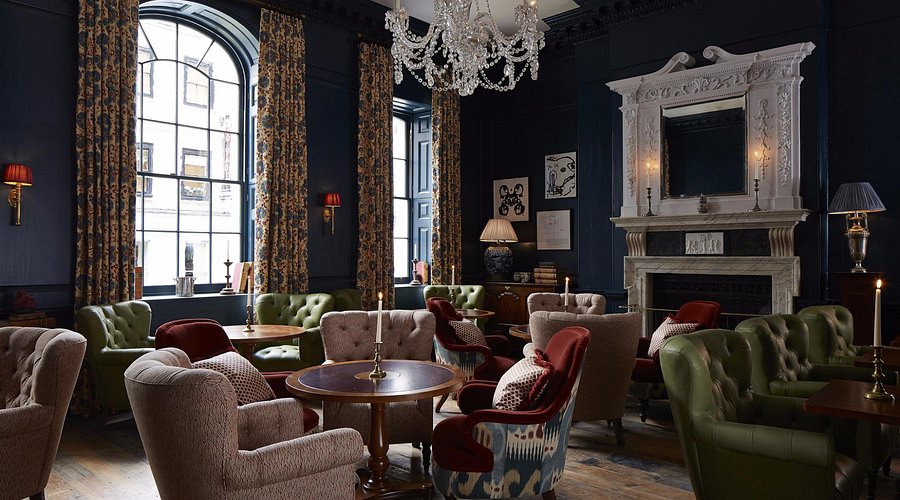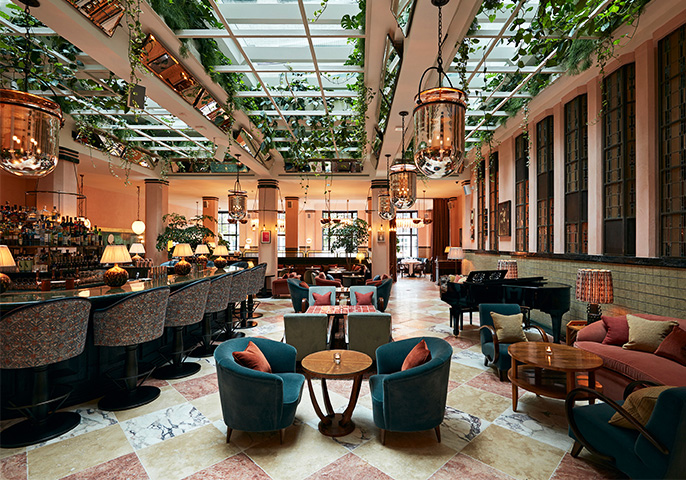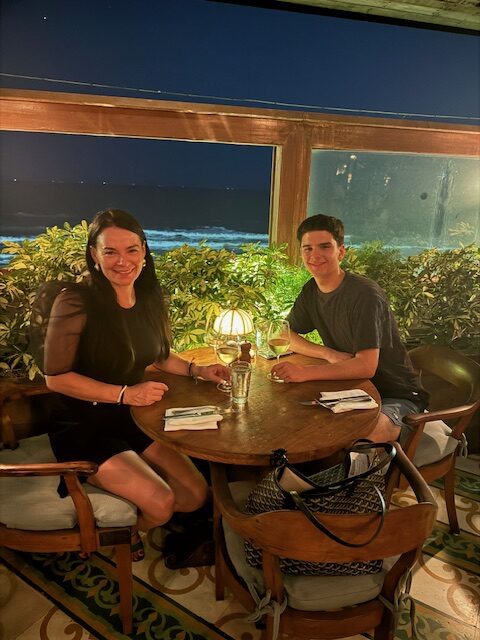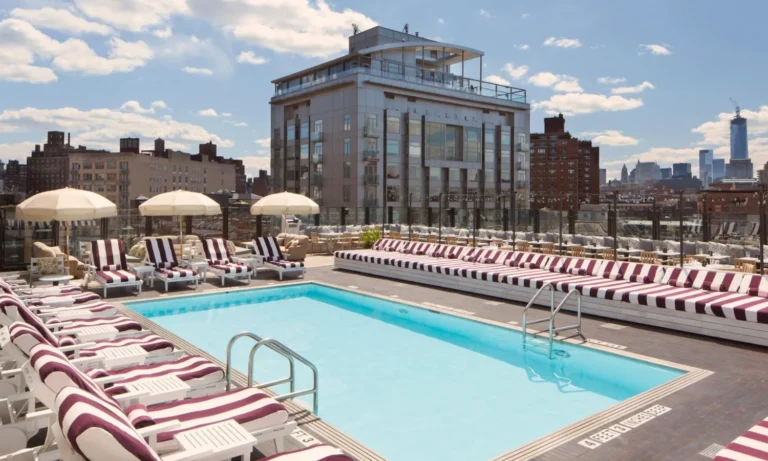Soho House has been taken private as the brand enters an iconic new era
In a landmark move shaking the luxury hospitality landscape, Soho House, the world-renowned private members’ club and hotel brand, has officially gone private following a $2.7 billion buyout led by MCR Hotels.
Notably, Hollywood actor and acclaimed tech investor Ashton Kutcher is joining Soho House’s board as part of the deal, signalling a fresh chapter that blends celebrity influence with operational expertise.
After a four-year journey as a public company, Soho House is stepping back into private ownership—a change investors and industry watchers say could redefine the brand’s future positioning, global expansion, and membership experience.
Under private ownership, Soho House is poised to renew its growth trajectory, sharpen its brand exclusivity, and enhance member experiences—while carefully balancing tradition with innovation.
For the luxury hotel sector, particularly in Europe, North America, and Asia-Pacific, Soho House will remain a powerful influence shaping community-driven hospitality’s future.
The eyes of investors, members, and industry leaders will be fixed on how the brand navigates this new chapter, defining what it means to belong in luxury hospitality for years to come.
But what does this privatisation means for Soho House’s iconic “Houses” worldwide, how might it impact brand standards, and the broader implications for the global luxury hotel market, especially in key regions like Europe, North America, and Asia-Pacific.

The $2.7 Billion Privatization Deal and Key Players
Announced in August 2025, the deal sees MCR Hotels—one of the largest independent hotel operators globally and owners of renowned properties such as the TWA Hotel in New York—acquire all outstanding shares of Soho House at $9 per share.
This premium values the company at $2.7 billion and provides an 83% premium over the pre-deal share price, ending Soho House’s brief and turbulent public market stint.
Besides MCR’s CEO Tyler Morse stepping in as vice chairman, the most high-profile addition is Ashton Kutcher, whose Hollywood-mediatech charisma and strategic investing pedigree are expected to bring new cultural and digital dynamism to the club’s boardroom.
Meanwhile, Soho House founders and existing major shareholders like Nick Jones and Richard Caring retain controlling equity, ensuring continuity amid change.

What This Means for Soho House Houses Globally: Expansion vs. Consolidation
Soho House currently operates 46 locations in 18 countries, including flagship venues in London, New York, Los Angeles, Berlin, Mumbai, and Hong Kong.
Despite rapid expansion in recent years—with multiple Houses opening even during the pandemic—its stock performance as a public company was challenged by profitability concerns and questions over brand exclusivity dilution.
Industry analysts widely expect privatization to bring renewed focus and strategic clarity, allowing Soho House to:
- Accelerate development of four confirmed new locations planned for 2026, including key cultural hubs like Barcelona, Ibiza, and Manchester.
- Deepen investment in technology platforms to enhance member engagement and operational efficiency.
- Maintain its signature ethos while rigorously protecting the brand’s exclusivity—potentially tightening membership criteria to counter fears of over-expansion.
Interestingly, Soho House has never closed a House in its history, not even during major disruptions like COVID-19, signaling operational resilience. While some market observers question if any closures may occur under the new private structure, current sentiment suggests that expansion remains the priority over downsizing.

Will Membership Standards Change?
One of the pressing questions around Soho House’s privatization is whether membership standards and the overall experience might evolve—positively or negatively.
As a brand built on creative community, exclusivity, and discreet celebrity allure, Soho House’s reputation is intimately tied to the quality and curation of its membership.
With fresh capital and governance changes:
- There is optimism for enhanced member experiences through investments in improved services, wellness offerings (including the new Soho Health Club fitness concept), and curated events.
- However, investors acknowledge the risk of brand dilution if growth outpaces the club’s ability to maintain its elevated culture.
- Ashton Kutcher’s involvement could bring fresh cultural relevance and digital savvy, potentially attracting a younger, tech-aware demographic without alienating core longtime members.
Ultimately, retaining Soho House’s distinctive blend of privacy, creativity, and luxury will likely remain a strategic pillar, reinforced with tighter brand stewardship under private ownership.

Impact on the Luxury Hotel Market: Regional Considerations
Soho House’s privatization is particularly consequential in the luxury hotel market, which is navigating fluctuating travel demand, investor caution, and evolving consumer preferences. Key impacted regions include:
- Europe: London remains Soho House’s spiritual home, influencing boutique hotel development and private club culture across cities like Berlin, Barcelona, and Ibiza. Soho House’s private ownership signals potential new openings and deeper integrations with local creative scenes.
- North America: The U.S. market, particularly New York, Los Angeles, and Miami, will be central to Soho House’s growth strategy aligned with MCR’s extensive portfolio and operational expertise. This deepens competition with established luxury operators but also may foster innovative joint ventures and lifestyle hospitality concepts.
- Asia-Pacific: Rapid urbanization and rising luxury demand in cities like Mumbai, Hong Kong, and Bangkok position this region as ripe for expansion. Soho House’s continued interest in launching new “Houses” here can drive elevated hospitality standards and exclusivity tailored to affluent creative communities.

Broader Market Implications: Luxury Hospitality’s Future
Soho House’s move to private ownership reflects a larger trend in luxury hospitality toward experiential exclusivity, curated community, and hybrid social-living concepts. The deal underscores the demand for lifestyle brands that combine creative cultural cachet with operational sophistication.
Key implications include:
- Increased investor appetite for private membership and lifestyle brands offering differentiated community-centric products.
- A shift toward private equity and vertically integrated operators such as MCR Hotels, blending hospitality expertise with brand management.
- Heightened focus on technology-enabled service and member experience platforms facilitating personalized, exclusive offerings globally.
As such, Soho House’s privatization may redefine luxury hospitality benchmarks and inspire competitors to refine brand positioning, membership policies, and global growth ambitions.







